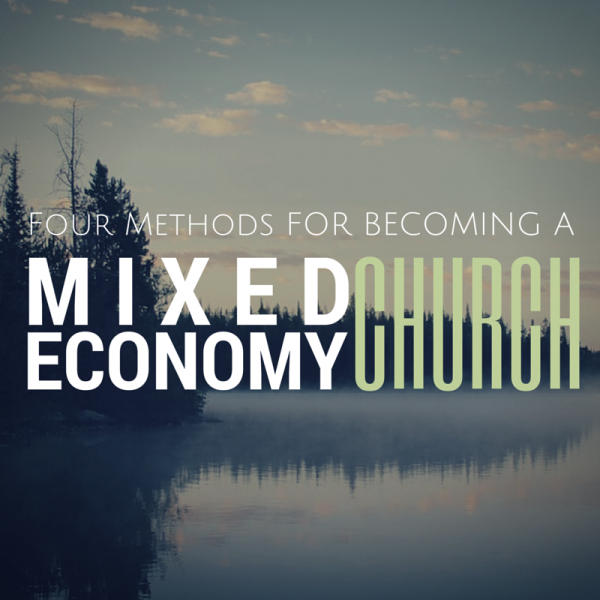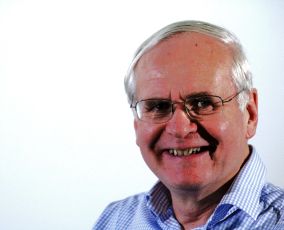
A Mixed Economy?
It’s easy to go through life, only interacting with people just like themselves. For many churches is no different.
There is a growing need for churches that are a “mixed economy.” These churches thrive be on creating opportunities for old and new expressions of the church to be a blessing to each other. The term was coined by Rowan Williams. The Fresh Expressions UK Website likens the mixed economy to the Eucharist itself, saying:
Just as the pieces of broken bread – in their different shapes and sizes – belong to the one loaf, we see that in all our diversity we belong to each other because we each belong to the one body of Christ.
Phil Potter, Team Leader of Fresh Expressions UK has likened the ‘mixed economy church’ to rivers and lakes. Rivers flow, bubble with energy and bring new water into lakes. Lakes are deeper and more tranquil. Just as rivers and lakes need each other, new forms of church flow into the existing Church and are enriched by its depth and traditions.
Four Methods that Mix Things Up
In some cases, a mixed economy church develops when new believers have a blended church experience. They attend both a fresh expression and an established church. There is nothing in the Bible to say that you can’t belong to two local churches! Rather than consumerism, this is about commitment – to more than one Christian community.
Shared events between an established church and a fresh expression can also lead to the development of a mixed economy church. The two communities can share social events, study groups, short courses, outreach or occasional acts of worship. Both will have a richer church life for having shared together.
One place to start might be for a fresh expression to look out for opportunities to serve its parent church. Might it provide the refreshments for a church study day, for example? There is nothing like loving kindness to open others’ hearts.
A third expression of the mixed economy occurs when emerging Christians connect to the church at large. This can happen through events run by local churches together, or through regional and national conferences and training events, or through accessing Christian resources and making connections online.
Fourthly, the mixed economy develops when new Christian communities cluster together. In an English cathedral city, a small team hosts a monthly Sunday breakfast for people in the neighborhood who don’t attend church. Up to 60 have crammed into a house!
The Birth of a Mixed Economy Church
Picture this:
A house is crammed with people who do and don’t have a church. They’ve gathered around the breakfasts are other events, such as ice cream parties in the summer and hot chocolate parties in winter.
These individuals start to ask questions about spirituality and faith, they are invited to a weekly meeting at which the core team eats together, plans, prays and studies the Bible. If a person enjoys it, they are invited to join the team.
Within two or three years, the team grew from 8 to 18 people. It multiplied into two cells. The cells meet from time to time.
Now, picture the same scene after five years:
Some of the cells will no longer be new. They will represent an established church. As new cells keep being added and cluster with these older cells, they will give birth to….a mixed-economy church!
If you lead a fresh expression, keep connecting to the wider body! Existing churches may be refreshed and energized by the new life you bring. Your fresh expression may be deepened by the wisdom and experience of established churches.
It can be win-win for everyone.
Visit or Host a Fresh Expressions Vision Day Near You!

